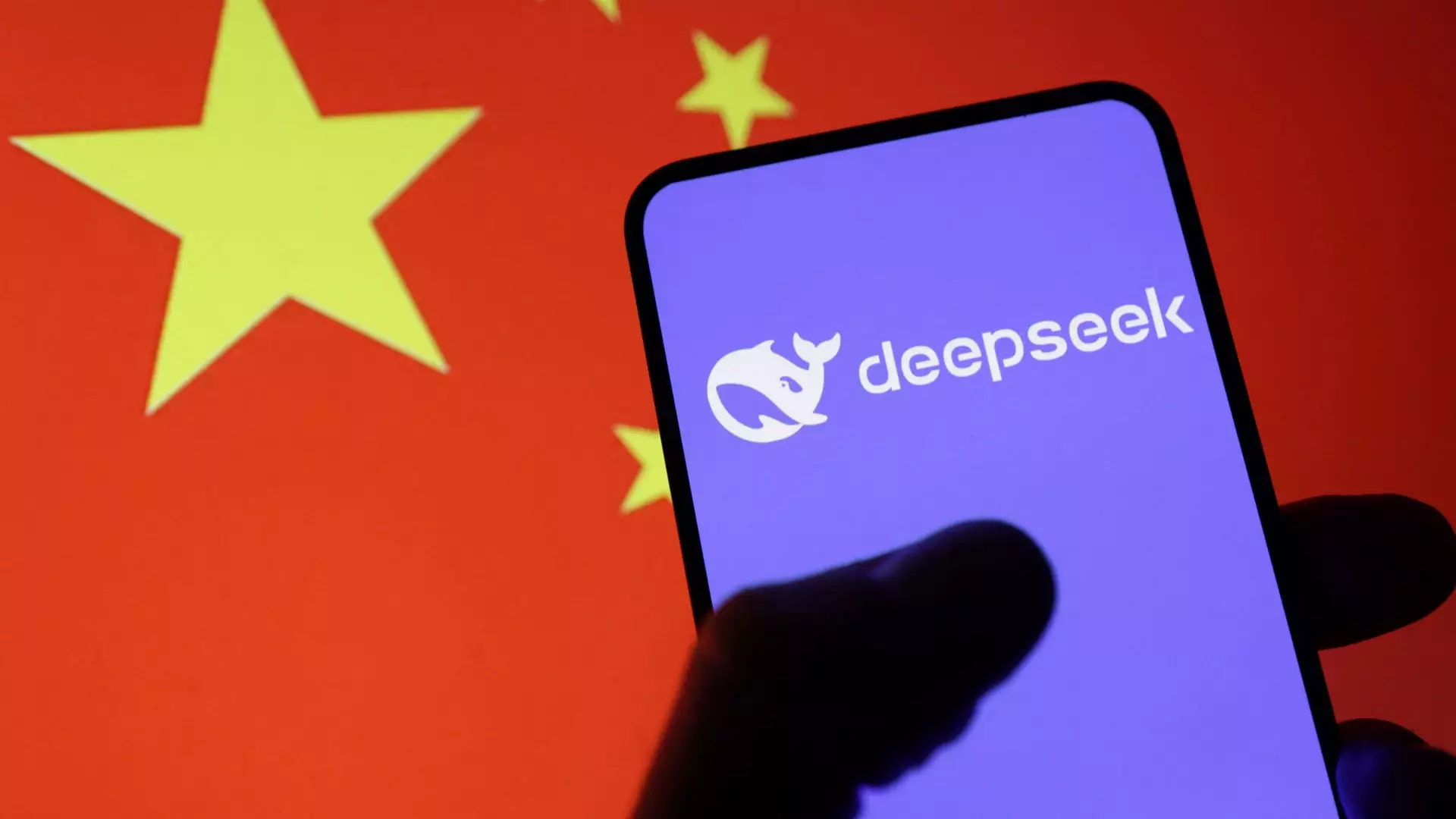In the wake of increasing global competition in the realm of artificial intelligence (AI), China’s startup DeepSeek has emerged as a formidable player, capturing the attention of prominent tech CEOs and analysts alike. The company’s introduction of its R1 AI model has not only positioned it as a rival to established players such as OpenAI but has also sparked significant discussions about the implications of such innovations. With notable comments from leaders including Microsoft’s Satya Nadella, OpenAI’s Sam Altman, and Apple’s Tim Cook, the tech world is buzzing with the potential ramifications of DeepSeek’s rapid ascent.
One of the attributes setting DeepSeek apart is the reported cost efficiency of developing its R1 model, which allegedly cost a mere $6 million—a fraction of what competing models in the U.S. have incurred. This has raised eyebrows, significantly affecting the market valuations of major chip manufacturers like Nvidia and Broadcom, which saw substantial declines in their stock prices. This financial shakeup highlights not just a rivalry in technology but also underscores the economic stakes involved. Dependency on advanced chip manufacturing and AI infrastructure becomes glaringly evident when innovations like DeepSeek’s R1 can disrupt established titans.
Various reports have challenged the perceived cost-effectiveness of DeepSeek, with some estimating its total expenses exceeding $500 million since inception. Nonetheless, the media frenzy surrounding DeepSeek hints at a broader concern: are U.S. tech executives truly equipped to confront a potential existential threat posed by innovations emerging from abroad?
The timing of DeepSeek’s breakthrough could not be more critical. With President Donald Trump back in office, the focus on secure and advanced AI capabilities in the U.S. has intensified. His administration’s commitment to domestic advancements in AI, through initiatives like Project Stargate, illustrates an understanding that the geopolitical stakes associated with technology can no longer be ignored. The responses from tech leaders indicate a simmering awareness that AI is not just an economic engine but also a matter of national security and global leadership.
Palantir’s CEO Alex Karp expressed an urgent call for collective effort amidst warnings of AI in the wrong hands. The discussion around AI’s capabilities straddles the line between optimism regarding innovation and apprehension regarding its potential misuse. The call for an “all-country effort” reinforces the notion that AI is a shared global interest—one where cooperation and vigilance go hand-in-hand.
In light of DeepSeek’s advancements, responses from industry giants have been mixed. Apple’s Tim Cook emphasized that innovation driving efficiency is generally a positive development, albeit providing a rather cryptic outlook on how it might affect Apple’s margins. Mark Zuckerberg of Meta expressed the need for a nuanced understanding, suggesting that it is still premature to decisively evaluate how a single model could redefine the broader market dynamics. His company is poised to make broad investments, outlining a commitment to secure AI capabilities that cannot be overlooked.
Meanwhile, Satya Nadella of Microsoft remarked on an emerging scalability in AI technology akin to previous waves in computing history. His reflection on the commoditization of AI technologies suggests that competition, rather than fear, might spur innovation as companies race to adopt cutting-edge practices and tools.
Despite the apprehension surrounding the rapid developments from DeepSeek, industry insiders have conveyed a sentiment that while competition is undoubtedly intensifying, American companies should not succumb to panic. Reid Hoffman, a key player in the AI arena, posited that rather than signaling a defeat, the developments represent a clarion call to invigorate local processes and speed up advancements in AI technologies. This duality of rivalry and potential for collaborative growth may very well define the western response to deepening international competition in AI.
As we look to the future of artificial intelligence, the evolving landscape shaped by startups like DeepSeek underscores a growing imperative: the need for agility, foresight, and adaptability among tech leaders globally. The stage is set for intense competition, but with it comes an opportunity for innovation that could not only fuel tech advancements but also foster harmonious international relations in a tech-centric world. As the contours of the AI narrative develop, one thing is clear—a revolution is underway, and the world is watching.

Leave a Reply